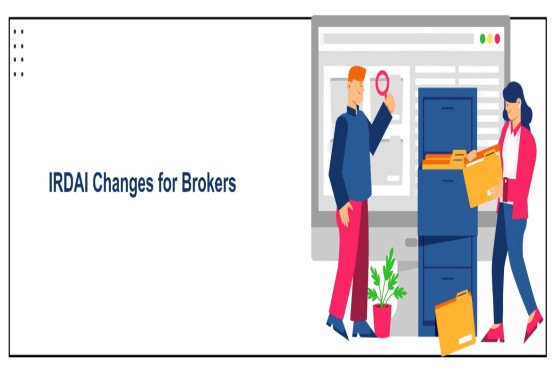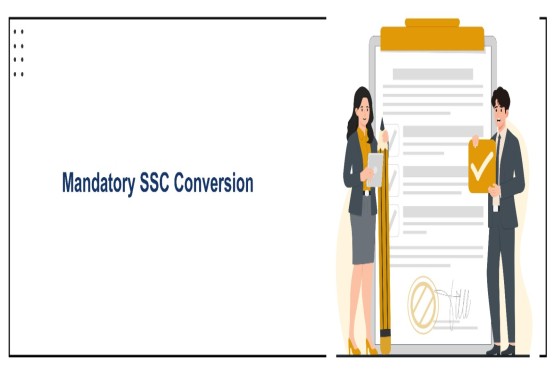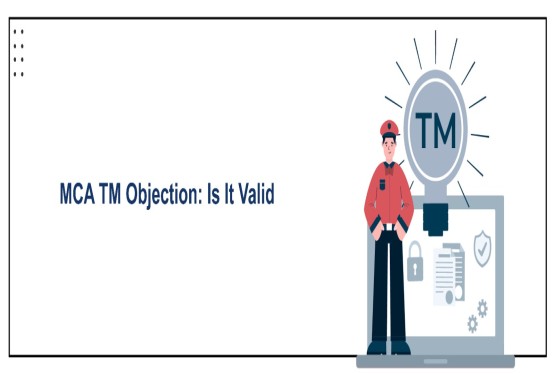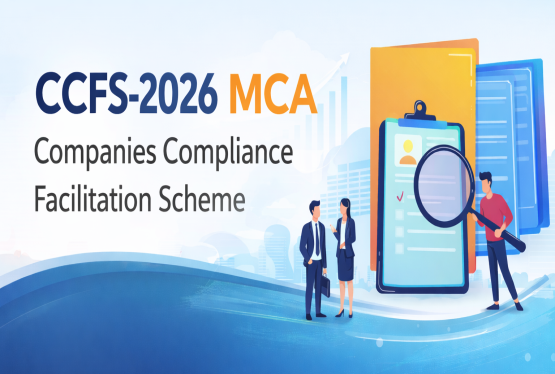In last few decades the Indian security market has change a lot- from paper shares certificate to demat and online trading. But many investors and their legal heirs still face problem to recover the old shares, dividends, or transfer securities. To solve this SEBI has made KYC (Know Your Customers) mandatory for all the shareholders who hold the physical share. Without completing KYC, request like transfer, name change, transmission, or Recovery of Shares from the IEPF cannot be possible.
Step by step process for KYC
1. Obtain KYC form
-
Shareholders need to obtain KYC forms from RTA (Registrar Transfer Agent)
2. Fill out the form and attached the required documents
-
fill out the forms such as ISR-1 (for KYC Updation), ISR-2 for (Bank verification), and SH-13 (for Nominee updation in physical securities)
-
Attached the required documents such as PAN card, Aadhar card, Cancelled cheque, and Client master list (CML) of the demat account.
-
In case of deceased shareholder, the death certificate must be attached for verification.
3. Attestation and confirmation
-
Get the ISR-2 form which is attested by the bank.
- Submit the complete form and Supporting document to the RTA.
4. Follow-up and confirmation
-
Engage in effective communication with the RTA
-
Clarify and follow up on the status of your KYC updation.
-
Obtain the entitlement letter from the RTA, which is necessary for claiming unclaimed shares from the IEPF.
Required document for the updation of the KYC
-
Self-attested copy of Aadhar card for identification purpose
-
Self-attested copy of PAN Card for the name verification
-
Cancelled cheque for the verification of bank accounts details
-
Client Master List (CML) of demat account to verify the demat account
-
Death certificate (if applicable) in case shareholder is deceased the death certificate is attached for verification.
Why KYC Updation is mandatory for recovery of unclaimed shares?
KYC updation is mandatory for recovering unclaimed shares because it helps the IEPF Authority and the concerned company/registrar (RTA) verify the true identity and address of the claimant. Since unclaimed shares often involve large amounts and may belong to shareholders who are inactive, missing, or deceased, there is a higher risk of fraudulent claims. Updated KYC ensures that only the rightful shareholder or their legal heir receives the shares. Additionally, shares transferred from IEPF are credited only to a valid and KYC-compliant Demat account. Without updated KYC with your depository participant (NSDL/CDSL) and company RTA, the transfer process cannot be completed.
-
Proof of Ownership: KYC helps companies and RTAs confirm that the person claiming shares or dividends is the real owner.
-
Prevention of Fraud: By linking details with PAN, Aadhaar, and bank accounts, KYC prevents fake claims and impersonation.
-
Linking with Demat Accounts: Recovered shares must be transferred into a valid Demat account. KYC compliance with the depository (NSDL/CDSL) is compulsory before the account can receive shares. Without updated KYC, the transmission of shares into the claimant’s account will not be possible.
-
Faster Processing of Requests: With updated KYC, requests like share recovery from IEPF, name change, or duplicate share issue are processed quickly and smoothly.KYC Update for Recovering Unclaimed Shares from IEPF
Now KYC updation is the mandatory process by SEBI to verify and update shareholder details, ensuring ownership records and preventing fraudulent claims this process is the pre-requirement for the shareholder dealing with physical securities.
Timeline for KYC updation
The KYC updation usually takes 30-40 days to complete. Depending upon the response of the RTA and completeness of the submitted documents
Final thoughts
KYC updation has become a crucial step in the recovery and management of physical shares in India. It not only establishes the rightful ownership of securities but also protects investors from fraud and delays. By completing KYC and keeping records updated, shareholders and their heirs can ensure a smooth process for recovering unclaimed shares, dividends, or making changes like transfer and transmission. With SEBI’s mandatory KYC norms, transparency and investor protection in the securities market have significantly improved, making it easier and safer to reclaim old investments.
Frequently Asked Questions (FAQs)
Q1. What is KYC updation in the context of shares?
Ans. KYC updation means submitting and verifying shareholder details such as PAN, Aadhaar, bank account, and contact information with the Registrar and Transfer Agent (RTA). It is mandatory for all shareholders holding physical shares.
Q2. Why has SEBI made KYC mandatory for shareholders?
Ans. SEBI introduced mandatory KYC to prevent fraud, ensure that only rightful owners can claim securities, and streamline processes like transfer, transmission, and recovery of shares from IEPF.
Q3. What happens if I do not update my KYC?
Ans. If KYC is not updated, requests for transfer, name change, transmission, or recovery of shares/dividends will be rejected. Shares may remain unclaimed and eventually get transferred to the IEPF.
Q4. How long does the KYC updation process take?
Ans. The process usually takes 30–40 days, depending on how quickly documents are submitted and verified, and on the responsiveness of the concerned RTA.
Q5. Which documents are required for KYC updation?
Ans. Key documents include self-attested copies of PAN card, Aadhaar card, cancelled cheque, Client Master List (CML) of the demat account, and death certificate (if applicable).
Q6. Can legal heirs update KYC and claim shares of a deceased shareholder?
Ans. Yes. Legal heirs must provide the shareholder’s death certificate along with succession documents such as a will, succession certificate, or legal heir certificate, in addition to completing KYC.
Q7. What is the role of the RTA in KYC updation?
Ans. The Registrar and Transfer Agent (RTA) maintain shareholder records. They verify KYC documents, process requests, and issue entitlement letters required for recovery of shares from IEPF.
Q8. How can I check if my shares or dividends are transferred to IEPF?
Ans. You can visit the IEPF Authority website (www.iepf.gov.in) where companies publish details of unclaimed dividends and shares that have been transferred to the IEPF.
Q9. Is KYC updation required if I already hold shares in demat form?
Ans. No. KYC updation is primarily required for physical share certificates. Shares in demat accounts are already linked to PAN, Aadhaar, and bank accounts.
Q10. Can I convert my physical shares to demat without completing KYC?
Ans. No. KYC updation is mandatory before the dematerialization of physical shares. Without KYC, the conversion process cannot be completed.

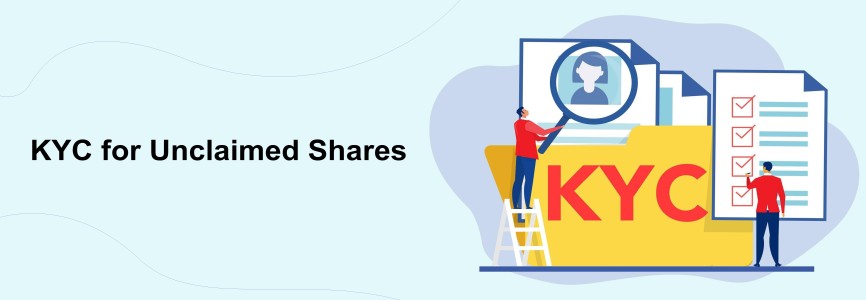









































































_crop10_thumb.jpg)


































































_crop10_thumb.jpg)
_crop10_thumb.jpg)



_crop10_thumb.jpg)


_crop10_thumb.jpg)





_crop10_thumb.jpg)

_crop10_thumb.jpg)














-suratgujarat-section-158_crop10_thumb.jpg)
-suratgujarat_crop10_thumb.jpg)
-(33)_crop10_thumb.jpg)



-ahmedabad_crop10_thumb.jpg)
-learn_crop10_thumb.jpg)

-learnn_crop10_thumb.jpg)



























































_crop10_thumb.jpg)























_Guidelines_learn_crop10_thumb.jpg)























_learn_crop10_thumb.jpg)
_crop10_thumb.jpeg)










_crop10_thumb.jpg)




_Second_Amendment_Rules,_2025_learn_crop10_thumb.jpg)







_learn_crop10_thumb.jpg)












































_learn_crop10_thumb.jpeg)






















_learn_crop10_thumb.jpg)



_rd_roc_learn_crop10_thumb.jpg)
















_learn_crop10_thumb.jpg)














_learn_crop10_thumb.jpg)
_Learn_crop10_thumb.jpg)











































_learn_crop10_thumb.jpg)




_learn_crop10_thumb.jpg)













_crop10_thumb.jpeg)















